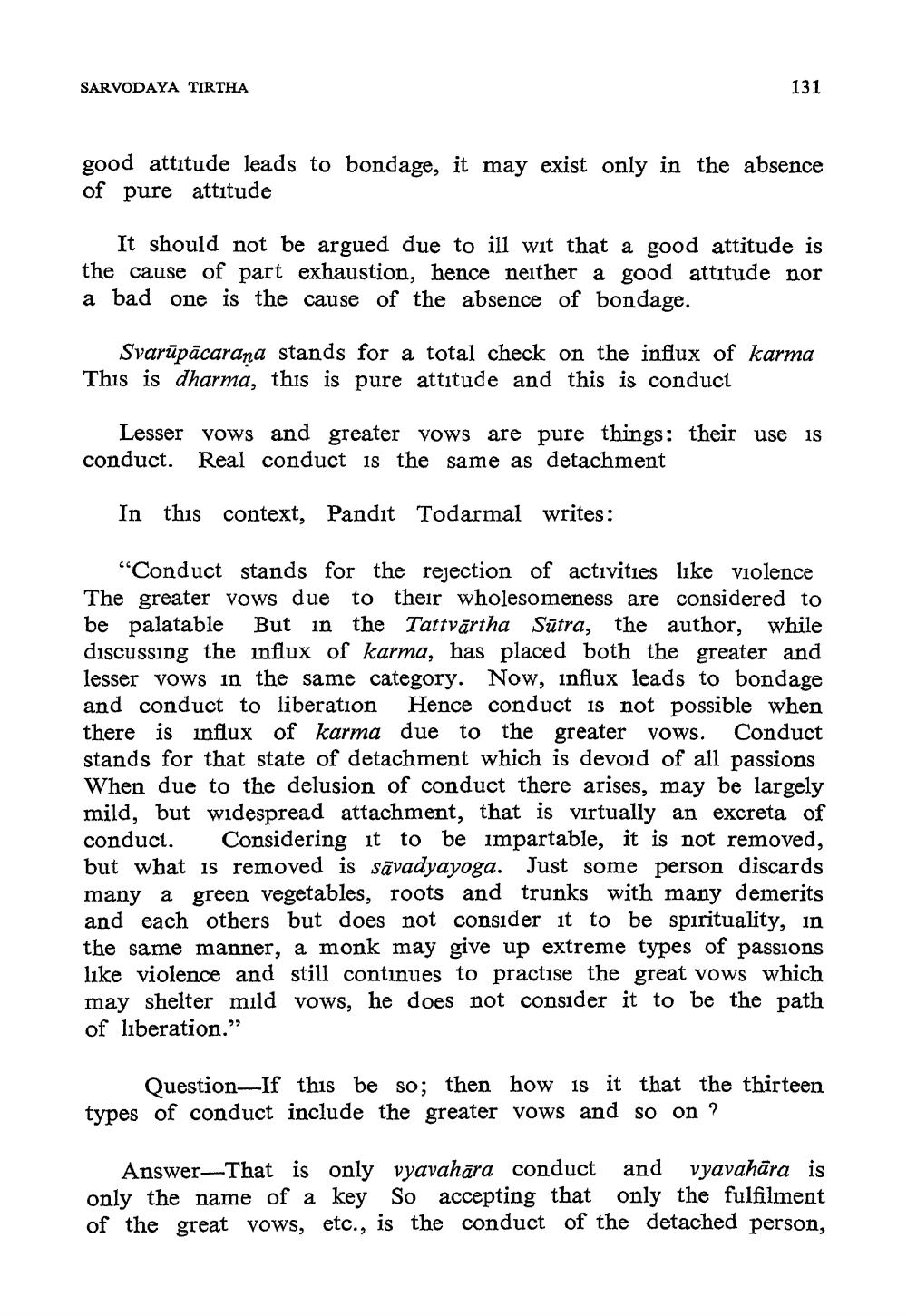________________
SARVODAYA TIRTHA
131
good attitude leads to bondage, it may exist only in the absence of pure attitude
It should not be argued due to ill wit that a good attitude is the cause of part exhaustion, hence neither a good attitude nor a bad one is the cause of the absence of bondage.
Svarūpācarana stands for a total check on the influx of karma This is dharma, this is pure attitude and this is conduct
Lesser vows and greater vows are pure things: their use is conduct. Real conduct is the same as detachment
In this context, Pandit Todarmal writes:
“Conduct stands for the rejection of activities like violence The greater vows due to their wholesomeness are considered to be palatable But in the Tattvārtha Sūtra, the author, while discussing the influx of karma, has placed both the greater and lesser vows in the same category. Now, influx leads to bondage and conduct to liberationHence conduct is not possible when there is influx of karma due to the greater vows. Conduct stands for that state of detachment which is devoid of all passions When due to the delusion of conduct there arises, may be largely mild, but widespread attachment, that is virtually an excreta of conduct. Considering it to be impartable, it is not removed, but what is removed is sãvadyayoga. Just some person discards many a green vegetables, roots and trunks with many demerits and each others but does not consider it to be spirituality, in the same manner, a monk may give up extreme types of passions like violence and still continues to practise the great vows which may shelter mild vows, he does not consider it to be the path of liberation."
Question-If this be so; then how is it that the thirteen types of conduct include the greater vows and so on?
Answer-That is only vyavahāra conduct and vyavahāra is only the name of a key So accepting that only the fulfilment of the great vows, etc., is the conduct of the detached person,




